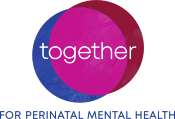The postpartum period can be a transformative, beautiful experience for new parents, however, it is not without a dark side for many. I personally experienced both the euphoric stage of new motherhood, as well as the anxious and depressed state that many women experience.
Perinatal/postpartum mood and anxiety disorders (PMAD) affect approximately 15 to 20% of new mothers. This may underestimate the prevalence of PMAD; the signs and symptoms may be missed and attributed to being a ‘normal’ part of motherhood, or, mothers may resist acknowledging the signs because of stigma or societal pressures.
If prolonged and untreated, PMAD’s can be detrimental to maternal health and the child’s development. As such, is important that we work to improve our screening/identification and treatment approaches for this group of women.
Naturopathic Medicine, with its emphasis on treating root causes and viewing health more holistically, is well suited to support women with PMAD’s. There are many factors or root causes that may be involved in the development of a PMAD, including but not limited to the following: personal history, family history, social support, birth experiences/trauma, stressors, nutritional status, and thyroid/hormonal factors.
In my experience, the most overlooked factors are nutritional status, stress levels, and thyroid/hormonal imbalances. First, is not uncommon for women to be undernourished during their pregnancy and when a new baby enters the picture. She may have forgotten to take her prenatal multivitamin, have pre-existing nutrient deficiencies, or feel like she doesn’t have the time or energy to nourish herself properly.
Elevated stress hormones are also common in this group of women. The stress hormone, cortisol, may high be due a variety of factors, including but not limited to: birth trauma, lack of support, financial challenges, relationship stress, and lack of sleep.
Further, the risk for developing hypothyroidism (an under active thyroid) is greater in the postpartum period. Hypothyroidism may develop due to nutrient deficiencies, prolonged elevation in cortisol levels, and hormonal and immune system changes associated with pregnancy and postpartum. Hypothyroidism is a common cause of depression, anxiety, and fatigue, and must be ruled out in all cases of PMAD.
In my opinion, the treatment approach to PMAD should be collaborative in most cases. Involvement of the woman’s G.P., a Psychologist or Social Worker, and an N.D. would address several facets of the PMAD. In moderate to severe cases medication may be necessary for a period of time. Counselling or CBT is also important to develop healthy coping strategies and to re-frame negative thought patterns.
My approach as a Naturopathic Doctor would begin with a comprehensive screening of thyroid tests and nutrient levels (ie. Vitamin B12, Iron status, Vitamin D3) in these women in order to better identify and treat any possible physiological underpinnings. Following a careful assessment of patient history and blood work, I work with women to optimize their nutritional status and provide dietary counselling, I encourage healthy lifestyle factors such as exercise, self-care, and mindfulness practices, and provide individualized nutritional or herbal supplement recommendations.
As an ND who has seen many women with PMAD, in addition to my personal experience, I have developed a deep understanding and empathy for this group of women. They deserve a thorough assessment of their physical, mental, and emotional health, as well as an individualized treatment plan to help them cope, overcome their PMAD’s, and improve their well-being so that they can be more present mothers for their babies and be their best selves.
